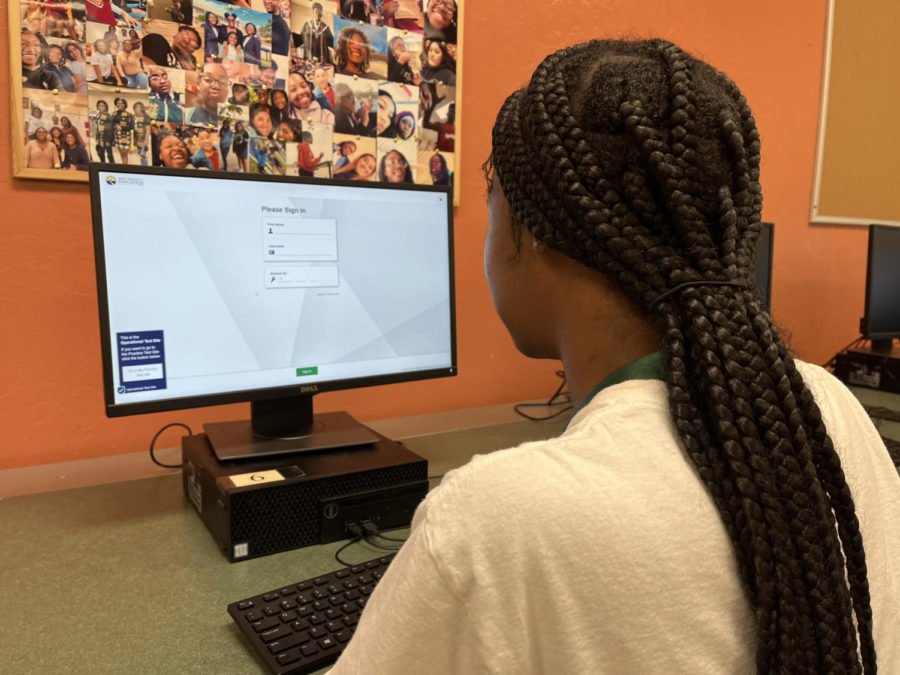F.S.A. to F.A.S.T.
A new way to assess student achievement.
Student logged in to the Secure Browser for the Florida Assessment of Student thinking.
January 5, 2023
On March 15, Gov. DeSantis signed the Senate Bill 1048, which officially replaces the Florida Standards Assessment. The legislation, sponsored by Senato Manny Diaz Jr. and Representative Rene Plasencia, makes Florida the first state in the nation to fully transition to progress-monitoring for school accountability. Beginning in the 2022-2023 school year, Florida students will have three short check-ins instead of end of the year high stake tests.
“This bill is about parents and kids, taking away the stress of a one-size-fits all test, giving each student a chance to succeed as an individual and empowering parents with the knowledge they need to help their kids reach their greatest potential,” said Speaker of the Florida House of Representatives Chris Sprowls.
After the curriculums changed to put more emphasis on passing the end-of-year exams than on adequately teaching the topic, the programs garnered criticism. In comparison to standardized testing at the end of the school year, FAST has the ability to help students and instructors alike focus more on meaningful education and classroom time through periodic measurement, which could be an improvement in monitoring and supporting K–12 students’ educations.
“FSA testing is nerve wracking. I put a lot of pressure on myself but my hard work pays off. When I first heard about our governor’s plan for this progress monitoring center, I really was very happy, because we were moving to a system that is easier and not as time consuming but still potentially would allow parents, teachers and students to get information as to where they were, and then use that information to get better,” Noor Islam, a sophomore said.
The plan would save testing time by up to 75 percent, which is good for both kids and teachers. Teachers may track and get real-time data revealing the precise areas in which a student might need remedial training thanks to the diagnostic, child-specific monitoring.
“Each year, Governor DeSantis’ administration has been committed to a data-driven approach to constantly improving how Florida provides support to its teachers and turns the focus of education to how we impact our students, especially those representing achievement gaps,” said Richard Corcoran, former Commissioner of Education.
In contrast to the FSA system, which frequently delays the release of test results until the summer after the current school year, the monitoring also enables students to receive feedback throughout the current academic year. With the move away from standardized testing, Florida will become the first state in the nation to enact progress monitoring.
This change maintains the proven, successful components of Florida’s school accountability that has seen Florida’s students grow over the last two decades. It redirects focus to students’ readiness and growth, while providing that information to students, parents and teachers in a more timely and efficient manner.









